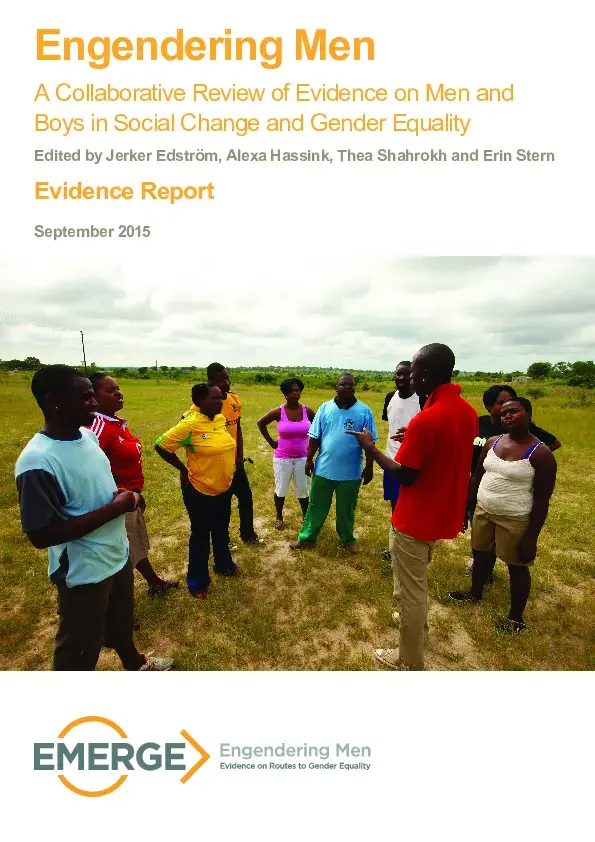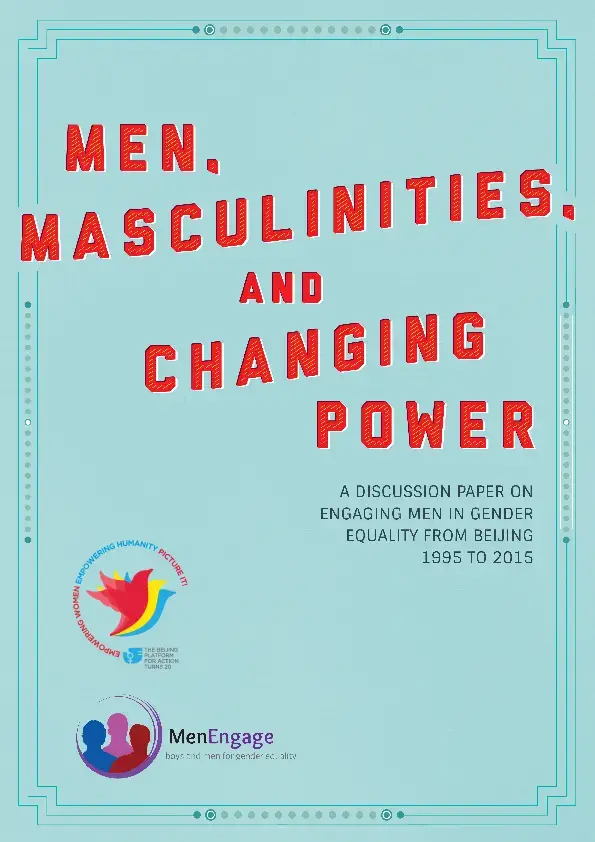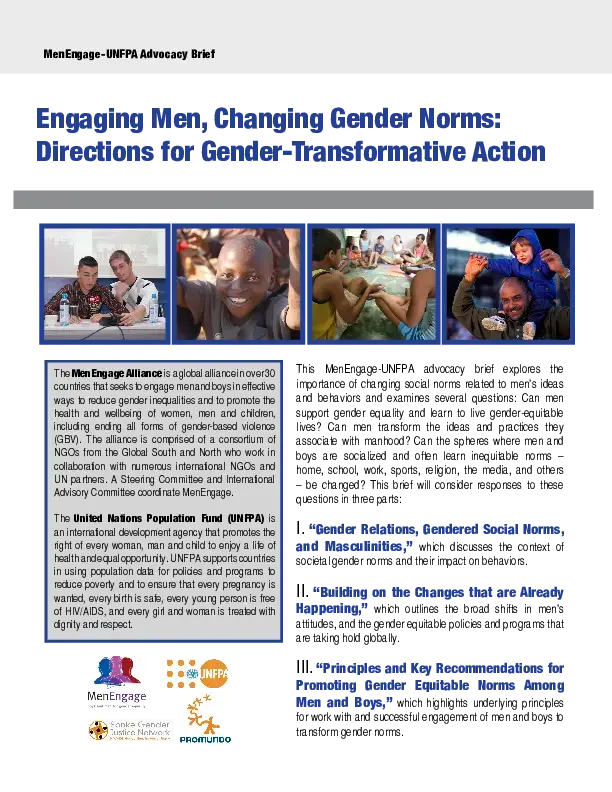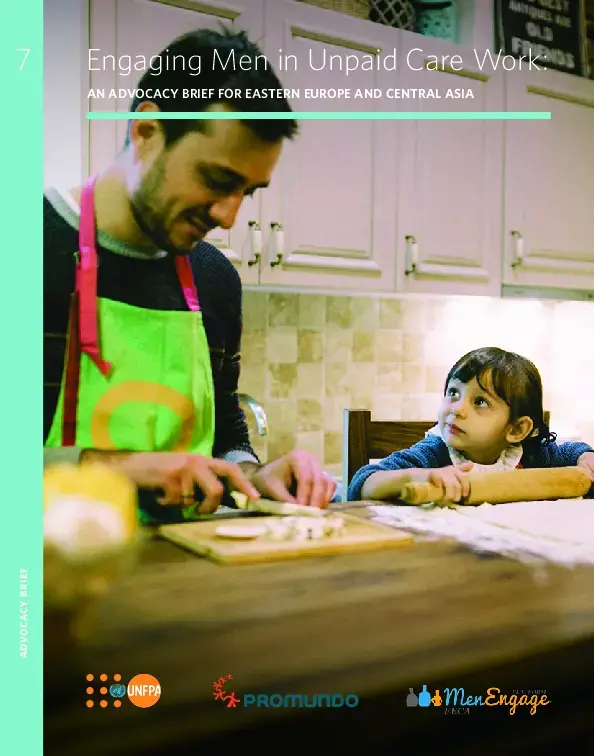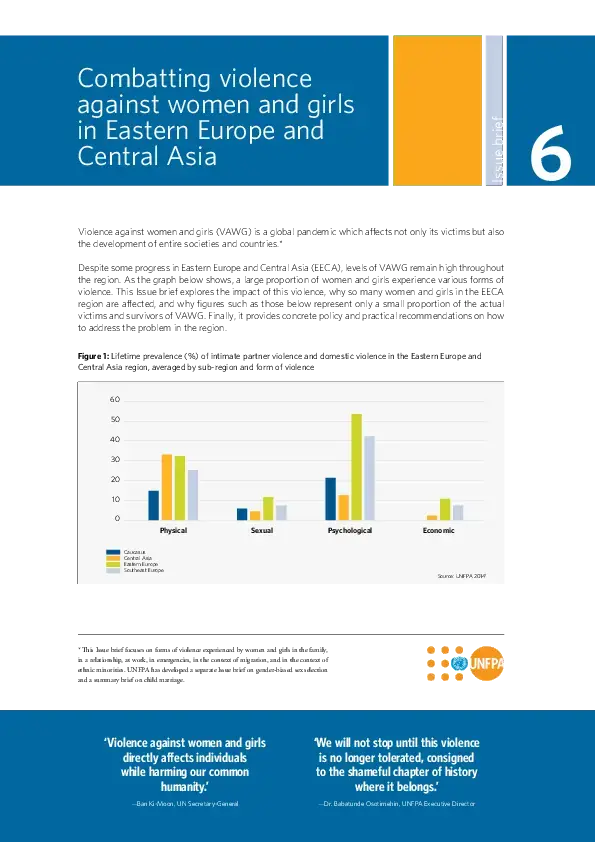Publication date : 01/01/2014
Author : Institute of Social Studies and Analysis (ISSA), with the support of UNFPA Georgia Country Office
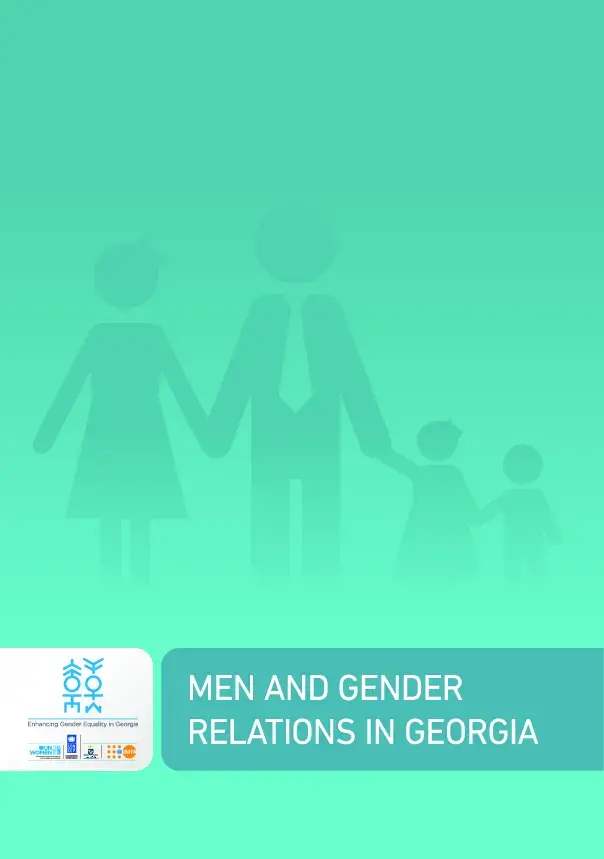
The goal of the survey “Men and Gender Relations in Georgia” is to gather data on men’s attitudes towards gender equality; and to describe their experience of and engagement in household activities and in such social practices, which involve residing together and sharing household responsibilities with a spouse or partner. The survey also gathered data from women in order to make a comparison of the opinions expressed by both genders.

